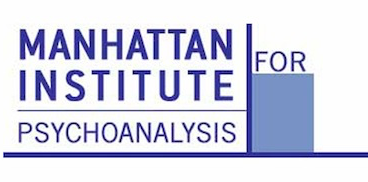In today’s post, first-year candidate Lindsay Nejmeh, LMHC, reflects upon her decision to enter psychoanalytic training and wrestles with the myriad changes she’s encountering on that journey.
Share your thoughts with Lindsay in the comments section below!
Psychoanalysis is the real deal, right? This feels very true as I dive into the beginning of my postgraduate training at the Manhattan Institute for Psychoanalysis. Recently I made the decision to expand my skill set as a clinician and become an analyst. I am proud and excited to begin, but in full disclosure, it hasn’t been an easy transition. I sit with uncertainty and lots of questions, the main one being, what if I change too much?
While I am only in trimester two of my first year, I already connect to new parts of myself that have been pushed away for a long time. I observe behaviors in myself that have served me for years. It feels hard. I have been a practicing psychotherapist since 2010; my background lies in a nurturing, strengths-based framework. My own therapist isn’t a psychoanalyst, and I will have to leave her (as requirements for training include working with a certified psychoanalyst). It scares me to wonder what lies ahead in my own analysis, yet I am pulled towards a deeper understanding of how I see the world. As classes unfold and discussions get richer, I do find myself speaking to patients in a new way. And again, scary feelings flood in. Is my definition of healing not the same as it used to be?
I recall the profound moment I chose this career and how I thought I would heal people. It was a Tuesday in the late winter of 2008. I was 22 and fumbling to figure out my life. I had recently graduated from NYU, was back home in New Jersey, and begrudgingly working in public relations. My grandmother, a feisty Italian lady, would drive me to the train station in her 1990 white Mercedes Benz with blue leather interior.
“Don’t worry, babe, everything works out,” she said one morning. “I got manicotti for dinner” (pronounced mah-nah-GOT-tah).
If you don’t have an Italian grandmother, or never met one, food is a therapeutic intervention in absolving one’s loathing. She drove off in her teal robe, curlers, and bright red lipstick. Her warmth practically erased my misery.
The commute by train was a soothing time of day. As I looked through the dirty windows, I wondered what was going on inside those houses we passed. At 7:30 am, most of the homes still looked sleepy and still. What were they dreaming about? I felt such a cozy curiosity while thinking about the minds of these people. As I imagined the layers within these strangers, I wondered what they needed to heal and live joyfully. They need someone to listen, to comfort. What did I need? I felt my mind expand and my heart pound. Oh! I thought. I want to be a therapist! How did I not know? And as they say, the rest is history.
But the rest has many more chapters. My introduction to psychoanalysis has taught me that healing can look different. Analysis seems magical. It is authentic, complex, and complicated. There is an intuitive quality about the technique that connects people in a way that does much more than fill their bellies with satisfaction. I enrolled in the program because I wanted to truly understand why humans fall into familiar patterns. I am a pro at consuming the needs and feelings of others. While this is probably part of the reason therapy comes naturally to me, I want to challenge myself and my patients more. I don’t want to worry that either of us will be shattered by the existence of conflicting feelings. I know this can be a disadvantage to my patients, as well as to myself. I want to experiment. But there are moments of worrying that I’ll have to lose my style, my warmth. What about the red sauce of love?
Training discussions with different supervisors, instructors, and colleagues have led me to believe that that’s not the case. We all use the pieces of our inherent selves to create our best interventions. Like our patients, we are all unique. Each intervention is thought out carefully with just the right ingredients. What I hope psychoanalysis will teach me is not to fear my patients’ pain. And there may be times when I trigger that ache. Healing doesn’t mean making it go away. It means being in it with them, and bravely surviving it.
I am who I am, and I probably will always be a nurturing analyst. (Thank God for Winnicott!) But I hope through my training that I will develop fresh and challenging techniques with everyone I see. All in all, a plate of manicotti for dinner probably isn’t the best way to deal with your problems. But maybe it’s okay. Sometimes.
Lindsay Nejmeh, LMHC, is a psychotherapist in private practice in New York City. She is trained as a Mental Health Counselor and works with adults and children. She is a first-year candidate in the License Qualifying Program (LQP) at the Manhattan Institute for Psychoanalysis.
If you enjoyed this post, we recommend:
For What It’s Worth: Response to “A Roundtable Discussion on Psychoanalytic Training”
Why Did You Become a Psychoanalyst? PART I and PART II








6 Comments
Leave your reply.